DNA Today: A Genetics Podcast
Discover New Advances in the world of genetics, from technology like CRISPR to rare diseases to new research. For over a decade, multi-award winning podcast ”DNA Today” has brought you the voices of leaders in genetics. Host Kira Dineen brings her genetics expertise to interview geneticists, genetic counselors, patient advocates, biotech leaders, researchers, and more.
***Best 2020, 2021, and 2022 Science and Medicine Podcast Award Winner***
Learn more (and stream all 380+ episodes) at DNAtoday.com. You can contact the show at info@DNAtoday.com.
This show is part of "Gene Pool Media: The Science Podcast Network" head to GenePoolMedia.com to explore all our science themed shows.
Episodes
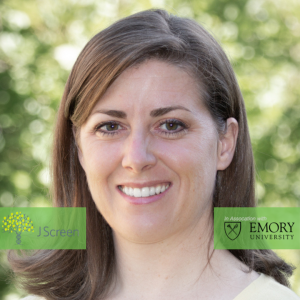
Friday Oct 16, 2020
Friday Oct 16, 2020
This episode is the last installment of our 7 part direct-consumer genetic testing series. Joining for this episode is guest Melanie Hardy, Assistant Director of JScreen Genetic Counseling Services, which is part of Emory University School of Medicine. Melanie has been an active member in The National Society of Genetic Counselors and the American Board of Genetic Counseling, including chairing multiple committees, workgroups and programs. She has also served on capstone committees for genetic counseling students at multiple universities.On This Episode We Discuss:Number of conditions on carrier screeningDifferent methods of carrier screeningConditions more common in people of Ashkenazi Jewish descentConditions where carriers can have symptomsLimitations of carrier screeningConditions identified on newborn screeningPotential differences between saliva and blood sampleIf carrier screening should be repeatedGenetic counseling session about carrier resultsReproductive options for carriersDuring this COVID-19 pandemic many patients and healthcare providers have turned to telehealth services. One of the first genetic counseling companies in this space was Advanced Tele-Genetic Counseling in 2016. AT-GC was conceptualized and grown by genetic counselors so that patients like you could access a genetic counselor no matter where you live. Their services are more important than ever to reduce your exposure during the pandemic. Learn more and book your appointment today with a board certified genetic counselor at AT-GC.com.Learn more about JScreen on their website, JScreen.org. Stay tuned for the next new episode of DNA Today on November 6th, 2020! New episodes are released on the first and third Friday of the month. In the meantime, you can binge over 130 other episodes on Apple Podcasts, Spotify, streaming on the website, or any other podcast player by searching, “DNA Today”.See what else we are up to on Twitter, Instagram, Facebook, YouTube and our website, DNApodcast.com. Questions/inquiries can be sent to info@DNApodcast.com.
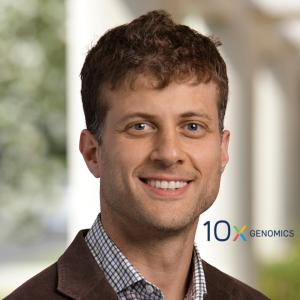
Friday Oct 02, 2020
Friday Oct 02, 2020
Exciting Announcement: This week “DNA Today” won the Best 2020 Science and Medicine Podcast in The 15th Annual Podcast Awards! This is thanks to each and every listener who nominated and voted for the show. THANK YOU for being such loyal listeners for the past 8 years. We’ve been nominated for four years, and it’s incredible to win this year! For those that aren’t familiar, The Podcast Awards are the longest running podcast awards event open to shows worldwide, this year there was 250,000 people who nominated shows.Michael Schnall-Levin joins host Kira Dineen on this episode to explore genetic testing technology including next-gen sequencing, single cell sequencing and bioinformatics. This episode is part 6 of our ongoing direct-consumer genetic testing series, check out our previous episodes for other deep dives into DTC topics.Michael is the Senior Vice President President of Product, Research and Development and Founding Scientist at 10x Genomics. Before joining 10x Genomics, Michael was an NSF postdoctoral fellow with Eric Lander at the Broad Institute where he worked on developing novel applications of DNA sequencing technologies. Prior to that, Michael worked at Foundation Medicine, where he developed some of the early algorithms to accurately detect mutations in patient tumor samples. Michael earned his PhD in Mathematics from MIT with Bonnie Berger, where he was both a Hertz fellow and NDSEG fellow, and his BA in Physics from Harvard College.On This Episode We Discuss:Steps to Sequence DNA/RNASanger and Next Gen SequencingSingle Cell SequencingProcess, Accuracy, AdvantagesUltiziting in Cancer, ImmunotherapyBioinformaticsFuture of Genetic TestingLearn more about 10X Genomics on their website, Twitter and Facebook.Picture Genetics is our sponsor for this DTC genetic testing series and offers a unique DNA testing service. These tests are designed for every stage of life, from family planning and newborn health, to personal wellness and disease risk. Unlike other companies, this is actually a clinical grade test where physicians and genetic counselors are involved. The test sequences entire genes that are medically actionable. It’s easy to order and understand with good looking reports! To order your Picture Genetics go to picturegenetics.com and use code “DNATODAY” for 25% off and free-shipping! Get actionable genetic insights today to benefit your family of tomorrow.Stay tuned for the next new episode of DNA Today on October 23th where we continue our direct-to-consumer genetic testing podcast series! New episodes are released on the first and third Friday of the month. In the meantime, you can listen to over 130 other episodes on Apple Podcasts, Spotify, streaming on the website, or any other podcast player by searching, “DNA Today”.See what else we are up to on Twitter, Instagram, Facebook and iTunes. Questions/inquiries can be sent to info@DNApodcast.com.
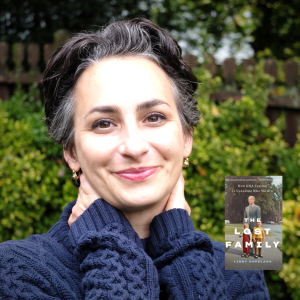
Friday Sep 18, 2020
Friday Sep 18, 2020
This episode is part of our ongoing direct-consumer genetic testing series. Joining the show is an award-winning journalist, Libby Copeland. Copeland, who writes about culture, science and human behavior, is the author of a new book, “The Lost Family: How DNA Testing is Upending Who We Are,” which explores the personal, familial and ethical implications of recreational DNA testing. Copeland was a reporter and editor at The Washington Post for eleven years, has been a media fellow and guest lecturer, and has made numerous appearances on television and radio. Enter our giveaway to win a copy of Libby Copeland’s book, “The Lost Family” on our Twitter, Instagram, and Facebook.Also be sure to enter our mentor session giveaway with our host Kira Dineen who will be meet with the winner in an hour zoom call to discuss applying to genetic counseling schools including essays and resumes.On This Episode We Discuss:DTCs Topics explored in “The Lost Family”Approach and implications of Yaniv Erlich’s 2013 groundbreaking study identifying “anonymous” male DNA donation to researchAncestry information revealed through the Y chromosomeCompanies that offer Y and mitochondrial DNA testingPrevious genetic database techniques to catch criminalsDatabases and techniques used to catch the Golden State KillerHow CODIS works for law enforcementCompanies with the largest databasesChanges to GEDmatches policy after catching the Golden State KillerLaw/protections to prevent law enforcement from using genetic genealogical databasesThe relationship between FamilyTreeDNA and the FBIStatus of DTC genetic testing companies opt in/out policiesThe amount of the American American population that could be identified from the DTC databasesPicture Genetics is our sponsor for this DTC genetic testing series and offers a unique DNA testing service. These tests are designed for every stage of life, from family planning and newborn health, to personal wellness and disease risk. Unlike other companies, this is actually a clinical grade test where physicians and genetic counselors are involved. The test sequences entire genes that are medically actionable. It’s easy to order and understand with good looking reports! To order your Picture Genetics go to picturegenetics.com and use code “DNATODAY” for 25% off and free-shipping! Get actionable genetic insights today to benefit your family of tomorrow.Stay tuned for the next new episode of DNA Today on October 2nd, 2020 where we continue our DTC genetic testing series! New episodes are released on the first and third Friday of the month. In the meantime, you can listen to over 130 other episodes on Apple Podcasts, Spotify, streaming on the website, or any other podcast player by searching, “DNA Today”.See what else we are up to on Twitter, Instagram, Facebook and Youtube, including our book giveaway! Questions/inquiries can be sent to info@DNApodcast.com.
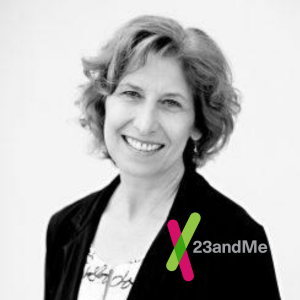
Friday Sep 04, 2020
Friday Sep 04, 2020
As part of this episode, 23andMe giving away a free DNA kit! To enter, go to DNA Today’s Twitter/Facebook (@DNApodcast) and Instagram (@DNAradio) and look for the post of a picture of a 23andMe kit with the simple instructions to enter. Don’t miss your chance to win this free DNA kit!Anne Greb, MS, CGC joins the show to share her expertise on direct-to-consumer genetic testing as part of our ongoing series on DNA Today. She is a genetic counselor and serves as lead of the medical education team at 23andMe. In this role, she is responsible for developing educational initiatives that equip healthcare professionals to better integrate personalized genetic information into the everyday care of their patients. Previously Anne was the program director of 3 genetic counseling programs, Wayne State University, Long Island University and Sarah Lawrence College. She also directed the medical genetics course taken by first year medical students at Wayne State University.On This Episode We Discuss:Consumers’ motivations to pursue direct-to-consumer (DTC) genetic testingPotential integration of DTCs into routine medical careAccuracy of DTCs (Ambry Paper)BRCA testing of 3 variantsRecommendations on Utilizing ResultsEducating Consumers on Result ImplicationsAdvice for Genetic Counselors with Patients Presenting DTCsExtra Information from Raw Data23andMe ResearchProtection of Consumers’ DataFuture of 23andMeAre you looking for COVID-19 testing? Our sponsor of this DTC genetic testing series is Picture Genetics, who is now offering FDA-authorized test kits. And you don’t have to leave the house, the kits are shipped directly to your home. Ordering takes only a few minutes by answering some questions about any exposures or symptoms you may have had. You can order your kit directly at picturegenetics.com.For more information about 23andMe you can check out their website, follow on Twitter, and like on Facebook/Instagram. Healthcare providers can also visit 23andMe.com/medical for further information. Don’t forget to enter our giveaway on Twitter, Facebook and Instagram!Stay tuned for the next new episode of DNA Today next month which continues our DTC genetic testing series! New episodes are released on the first and third Friday of the month. In the meantime, you can listen to over 130 other episodes on Apple Podcasts, Spotify, streaming on the website, or any other podcast player by searching, “DNA Today”.See what else we are up to on Twitter, Instagram, Facebook and iTunes. Questions/inquiries can be sent to info@DNApodcast.com.
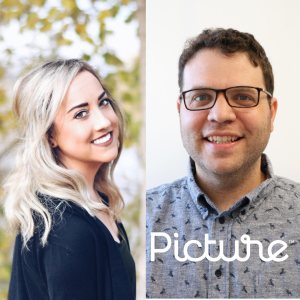
Friday Aug 21, 2020
Friday Aug 21, 2020
Picture Genetics Kit Giveaway! Enter to win your own free kit on our Twitter, Instagram, and Facebook.Guests for this episode are from Fulgent Genetics (offering Picture Genetic kits), which is the sponsor of this new Direct To Consumer Genetic Testing Series. Jessica Shiles is a genetic counselor and Dr. Samuel Strom is the lab director.Jessica serves as Fulgent’s Clinical Genetics Marketing Specialist. Her main role is to provide clinical training and expertise to help develop marketing material that is used to educate, support, and inform the patients and providers Fulgent serves. With Jessica’s strong passion for patient advocacy, she also leads Fulgent’s community outreach. She is a fellow Sarah Lawrence College’s alumni where she received her Masters of Science in Human Genetics.Previously Dr. Strom was an assistant professor at the UCLA David Geffen School of Medicine where he pioneered interpreting genomics results in the context of clinical diagnostic testing for rare inherited diseases and cancer. At Fulgent, he is continuing to forward this new science at an industrial scale. He is also an accomplished researcher in the fields of neurogenetics, ophthalmic genetics, and molecular diagnostics, with publications in top journals such as Science, JAMA, Genetics in Medicine, and Human Molecular Genetics.On This Episode We Discuss:Overview of Picture Genetics’ approach to DTCs (including genetic counseling)Difference between DTC genotyping and sequencingConditions on carrier screening (Picture Parenting)Ideal time for carrier screeningNewborn testing for healthy vs sick babiesNewborn testing vs newborn screeningConditions on newborn testing (Picture Newborn)Value of newborn testing after negative carrier screeningACMG59 qualification of conditions (Picture Wellness)Purpose of ordering testing on the ACMG59 genesCOVID-19 DTC testing, including FDA approvalThere is one correction during the episode, Jessica mentioned ACMG when she meant to say ACOG.As a DNA Today listener you can order your kits with code “DNATODAY” for a 25% discount and free shipping. Order at picturegenetics.com and the kit will be delivered right to your home! Thanks for Picture Genetics for sponsoring this DTC series. Don’t forget to enter our Picture Genetics Kit Giveaway on our Twitter, Instagram, and Facebook.Stay tuned for the next new episode of DNA Today on September 4th, 2020! New episodes are released on the first Friday of the month with some bonus episodes thrown in there. In the meantime, you can listen to over 125 other episodes on Apple Podcasts, Spotify, or streaming on the website. Questions/inquiries can be sent to info@DNApodcast.com.
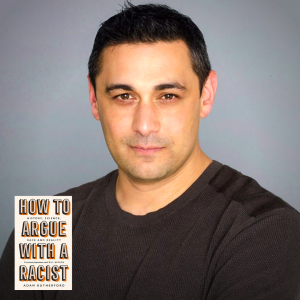
Friday Aug 07, 2020
Friday Aug 07, 2020
Dr. Adam Rutherford is our guest for this second installment of our Direct-To-Consumer Genetic Testing series. He is a geneticist, author, and broadcaster. Dr. Rutherford has a PhD in Genetics, a degree in evolutionary biology, and is an honorary Research Fellow at UCLA. He was an audio-visual content editor for the journal Nature for a decade, and is a frequent contributor to the newspaper The Guardian. On radio, he is the presenter of BBC Radio 4’s flagship science program, Inside Science, as well as many documentaries. On TV, he has presented multiple BBC series including The Beauty of Anatomy, The Gene Code, and award winners Playing God and The Cell. Dr. Rutherford has also been a scientific advisor to films including Biophilia Live, World War Z, The Secret Service and Ex Machina (2015). He has authored multiple books including, “A Brief History of Everyone Who Ever Lived” and the book we will be discussing today, “How to Argue With a Racist: What Our Genes Do (and Don't) Say About Human Difference” which is being released this August! Enter our giveaway for a copy of his book on our Twitter, Instagram, and Facebook.On This Episode We Discuss:How genetics is woven into the history of raceDiscrepancy of papertrails and ancestry reports from DTCs between European and non-European descentWhat DTC companies can do to address this racial disparityHow genetics of ethnicity contradict Dawkins’ “tyranny of the discontinuous mind” conceptHow is it possible to not be genetically related to an ancestorWhat we can learn by comparing the genomes of African and African-American peopleHow consumer ancestry genetic testing affects how we think about our genetic differencesOlympics reveal of the limitation genetic predispositionDTCs contribution to racial reificationSponsoring this episode is Advanced Tele-Genetic Counseling (AT-GC) which provides virtual appointments to meet with a certified genetic counselor. These one-on-one conversations can help you understand how your own genetics may play a role in your health. Access to healthcare should not be dependent on where you live, which is why ATGC was founded! You can schedule your telehealth appointment directly on their website.As mentioned in the episode, you can signup here for the next free Phenotips Speaker Series on August 12th at 12pmET. Our host Kira Dineen will be interviewing Ellen Matloff about “The Evolving Role of Genetic Counselors in Precision Medicine”.Stay tuned for the next new episode of DNA Today on August 21st! New episodes are released on the first and third Friday of the month. In the meantime, you can binge 125 other episodes on Apple Podcasts, Spotify, streaming on the website, or any other podcast player by searching, “DNA Today”.See what else we are up to on Twitter, Instagram, Facebook, YouTube and our website, DNApodcast.com. And don’t forget to enter the giveaway! If you can’t wait to see if you've won, head over to Amazon to order your copy. Questions/inquiries can be sent to info@DNApodcast.com.
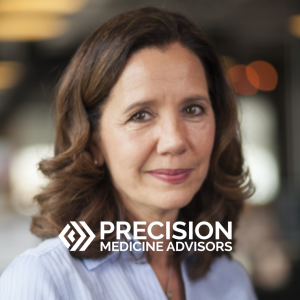
Friday Jul 17, 2020
Friday Jul 17, 2020
Last chance to nominate DNA Today in the Podcast Awards for the best Science and Medicine. Please take a few minutes to support the show!This episode kicks off our Direct-To-Consumer (DTCs) Genetic Testing Series! Check out our previous episodes about DTCs including episode 116, 105, 91, 80, and 56.Over this brand new series, we are going to be interviewing a whole bunch of experts including authors Adam Rutherford and Libby Copeland about their new books exploring DTCs and we get to hear directly from companies like Fulgent Genetics, JScreen, and 23andMe. So much more to come over the next few months!This series is sponsored by Picture Genetics, who is now offering FDA-authorized COVID-19 test kits. And you don’t have to leave the house, the kits are shipped directly to your home. Ordering takes only a few minutes at picturegenetics.com. Use code “DNATODAY” for 25% and free shipping on all other kits!To start off this series, we are joined by Jeanette McCarthy, MPH, PhD, who is a UC Berkeley trained genetic epidemiologist with current faculty positions at UCSF and Duke. Her interests are in educating stakeholders in the area of precision medicine, including healthcare providers and consumers. In 2014, Dr. McCarthy helped launch the first consumer-facing magazine in this field, Genome, where she served as the founding Editor-in-Chief. Dr. McCarthy is also the founder of Precision Medicine Advisors, where she develops and delivers workshops and online courses related to genetic testing.On This Episode We Discuss:Top companies in the DTC genetic testing industryDifferences between patient initiated, physician initiated, and/or medical/clinical gradeLesser known areas of testing including pharmacogenomicsRole of FDA regulationLearn more from Dr. Jeanette McCarthy on PrecisionMedicineAdvisors.com. Check out this blog post we mentioned during the episode where Dr. McCarthy explains how the genetic testing industry has developed and some of the recent industry trends and factors impacting its growth.Join host Kira Dineen live on Zoom in the Phenotips Speakers Series on July 27th 12pmET! Kira will be hosting the first installment by interviewing Advanced Tele-Genetic Counseling’s Founder Elizabeth Turner about “Adapting to Virtual Care in Genetic Counseling”. Register for free here.Stay tuned for the next new episode of DNA Today’s DTC series on August 7th with Dr. Adam Rutherford where we discuss his book How To Argue With A Racist: What Our Genes Do (And Don’t) Say About Human Difference. New episodes are released on the first and third Friday of the month. In the meantime, you can binge 125 other episodes on Apple Podcasts, Spotify, streaming on the website, or any other podcast player by searching, “DNA Today”.See what else we are up to on Twitter, Instagram, Facebook, YouTube and our website, DNApodcast.com. Questions/inquiries can be sent to info@DNApodcast.com.
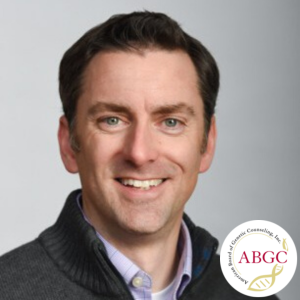
Friday Jul 03, 2020
Friday Jul 03, 2020
Answering your listener submitted questions about the American genetic counseling board exam is the ABGC President, Adam Buchanan, MS, MPH, CGC!Aside from this role at American Board of Genetic Counseling, Adam is an associate professor, genetic counselor and Director of the Geisinger Genomic Medicine Institute. Previously, he was a research associate at Duke Cancer Institute. His clinical expertise includes intimate knowledge of recommended risk management for hereditary cancer syndromes. He is co-leading Geisinger’s MyCode genomic screening program for medically actionable genomic results, and is helping to develop a health services research portfolio on patient-participant, family, and system outcomes of this program.This episode is sponsored by PhenoTips. If you are still drawing pedigrees by hand, you are overdue for an upgrade! PhenoTips provides a free digital pedigree drawing tool. Not only is it intuitive and easy-to-use, it’s 2.5 times faster than your pen and paper. And we all know time is very valuable in the clinic. Give it a try at phenotips.com/signup.On This Episode We Discuss:Timeframe for the boardsStructure of the examStudy resourcesContent on the examStrategy to approach questionsPercentage passing rate (Is there one?)Results and CGC statusAccommodating for COVID-19 (Possible Remote Test Taking)Inclusivity boards price and questionsUpdate: As teased by Adam in this episode, ABGC officially announce the boards exam is also being offered with remote proctoring in August 2020. Read more on their website here.Learn more on ABGC’s website, here is the content outline that was referred to throughout this interview. Here is the practice exam for purchase ($55) to access your strengths and weaknesses. Here is a page to learn more about the scoring of the exam and here is a page to see specific passing rates over the last few years.During the interview we also reference #ABGCListens tweetchat, which you can read here on Twitter. For other genetic counseling conversation read and participate in #gcchat on Twitter. You can also follow Adam directly on Twitter.Next episode of DNA Today is launching the brand new Direct-To-Consumer Genetic Testing series on July 17th! This series will be sponsored by Fulgent Genetics. New episodes are released on the first and third Friday of the month with some bonus episodes thrown in there. In the meantime, you can listen to over 125 other episodes on Apple Podcasts, Spotify, or streaming on the website including the previous series about infertility.See what else we are up to on Twitter, Instagram, Facebook and iTunes. Questions/inquiries can be sent to info@DNApodcast.com.
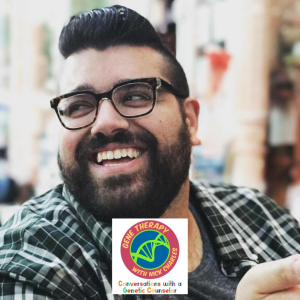
Friday Jun 26, 2020
Friday Jun 26, 2020
Podcast Award Nominations begin July 1st, 2020! Please help DNA Today receive a fourth nomination (and hopefully a win this year!) by visiting PodcastAwards.com and selecting “DNA Today” in the Science and Medicine category. We can only receive a nomination if YOU nominate the show!This episode concludes DNA Today’s 7 part infertility series. The first episode kicked off with Lauren Isley who shared about fertility genetic counseling. The next two episodes featured a couple who went through reciprocal IVF to have their daughters (part 1 and 2). Filmmakers of fertility movie ANYA joined the show next. Dr. Kara Goldman followed discussing diagnostic fertility testing. Last episode, Genetic Counselor Jennifer Eccles explained the science behind PGT for polygenic conditions.This seventh and final infertility installment explores controversies surrounding fertility with genetic counselor and genetics podcast host, Nick Charles. He is the lead laboratory and quality control counselor at CooperSurgical, a preimplantation genetic testing lab. Prior to working in a laboratory position, he was a prenatal and reproductive genetic counselor at Rutgers-Robert Wood Johnson Medical School, counseling patients with high-risk pregnancies and/or fertility issues in the Maternal Fetal Medicine practice. He earned his bachelor’s degree in pre-med biology from the University of Scranton and his master’s in human genetics and genetic counseling from Sarah Lawrence College.This episode is also one of our crossovers with another genetics podcast. So be sure to hear the other half of our conversation on Nick’s show, Gene Therapy Podcast. Roles are flipped on his show where Nick interviews Kira about how to utilize social media to learn about genetic counseling, and to network and build a career.Sponsoring this episode is Advanced Tele-Genetic Counseling (AT-GC) which provides virtual appointments to meet with a certified genetic counselor. These one-on-one conversations can help you understand how your own genetics may play a role in your health including fertility. Access to healthcare should not be dependent on where you live, which is why ATGC was founded! You can schedule your telehealth appointment directly on their website.On This Episode We Discuss:Preimplantation Genetic Testing (PGT)Appropriate situations and where the line begins to blurMedical guidelines and recommendationsMosaic Embryos:Potential health concernsRegulations around implantationSituations to select and implantSuccess rate of pregnanciesCurrent and future researchDon’t forget to hear the other half of our conversation on Nick’s show, Gene Therapy Podcast. Just search Gene Therapy podcast in our podcast player or listen on his website. Keep up with the show by following on Twitter and Instagram.Stay tuned for the next new episode of DNA Today. New episodes are released on the first and third Friday of the month (with some bonus episodes thrown in there like this one)! In the meantime, you can listen to 125 episodes on Apple Podcasts, Spotify, or streaming on the website.See what else we are up to on Twitter, Instagram, Facebook and iTunes. Questions/inquiries can be sent to info@DNApodcast.com.
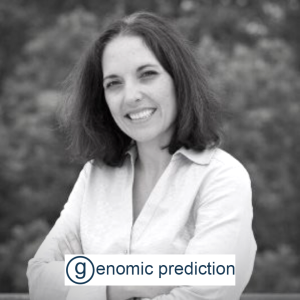
Friday Jun 19, 2020
Friday Jun 19, 2020
This episode continues DNA Today’s series about infertility. Over the last five episodes of DNA Today, we talked with experts in fertility. On the first episode we heard from Lauren Isley, a genetic counselor about artificial reproductive technologies and the genetic counseling side. We also had the Baileys on the show to share their reciprocal IVF journey in part 1 and part 2. The following episode the filmmakers of ANYA, a science fiction film about fertility. Last episode, Dr. Kara Goldman shared her experience in diagnostic fertility testing.Sponsoring the series is LetsGetChecked, check out their home testing kits including fertility, sexual health and others. Receive your own kit for 20% off by using code “DNAToday”.Jennifer Eccles joins the show to discuss PGT-P, preimplantation genetic testing for polygenic conditions. She is the Head of Genetic Counseling at Genomic Prediction Clinical Laboratory. Jennifer has over 20 years of experience in reproductive clinical genetics at institutions like Columbia, Beth Israel Medical Center, and BioReference Laboratories. As a licensed and certified genetic counselor, Jennifer has spent her career discussing genetic testing with individuals and couples at various stages along the path to parenthood. In her current role, Jennifer provides genetic counseling services along with authoring clinical and marketing content. Jennifer's publication history is focused on the patient-facing aspect of genetics and clinical testing. She is also a fellow graduate of Sarah Lawrence’s Human Genetics program.On This Episode We Discuss:Types of PGTPGT-P for Polygenic ConditionsScreening vs Diagnostic TestingList of Polygenic Conditions ScreenedPolygenic Risk ScoresPGT-P StepsCost and InsuranceGenetic CounselingLearn more about Genomic Prediction and their PGT-P on their website genomicprediction.com and follow them on Twitter, Instagram, Facebook, and LinkedIn.Stay tuned for the next and final episode of the DNA Today Infertility series! New episodes are released on the first and third Friday of the month. In the meantime, you can binge 123 other episodes on Apple Podcasts, Spotify, streaming on the website, or any other podcast player by searching, “DNA Today”.See what else we are up to on Twitter, Instagram, Facebook, YouTube and our website, DNApodcast.com. Questions/inquiries can be sent to info@DNApodcast.com.








